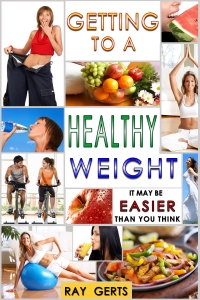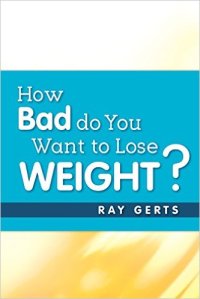A great post from WebMD explains the dangers of processed foods.
By Brenda Goodman
WebMD Health News
Melanie Warner is the author of Pandora’s Lunchbox: How Processed Foods Took Over the American Diet. A former reporter for The New York Times, she spent a year and a half investigating the modern system of food manufacturing in the U.S. to conclude that “much of what we now eat is not so much as cooked as it is engineered into finely-tuned, nutrient-deficient creations of science.”
Warner says she began to wonder what manufacturers were adding to foods after she started what she calls her “food museum”—a collection of products like cookies, crackers, and even guacamole from a grocery store deli that she discovered could sit on the shelf of her pantry or refrigerator for months or years past their expiration dates without spoiling.
Since her book came out in 2013, the FDA has told food manufacturers that trans fats are no longer safe to use in processed foods, and many major companies, including Kraft, General Mills, and Nestle have pledged to get artificial colors and flavors out of their products—a practice called “
clean labeling.”
WebMD asked her what she thought of these developments, and whether companies have really committed to making healthier products.
Q: I’m sure you’ve noticed this recent spate of public announcements from Kraft and General Mills and Nestle that they’re going to get artificial ingredients out of their foods. Do you think companies are feeling more consumer pressure to talk more about how they make their food?
A: Companies, I think, are only going as far as people push them, and by people I mean consumers—the people that are eating their products. They’re doing it because they’re being
pushed in that direction by consumers.
They get all this input coming from social media and focus groups and all this market data gathering that they usually do. What they’re hearing is that people are concerned about this, and they’re worried about sales. They feel like if they don’t do this there’s going to be an impact on sales, and they’re probably right.
But they aren’t doing it to be better companies. They’re not trying to truly open up the doors. They’re not truly trying to reform their foods to make them healthier. They’re simply reacting to what consumers are telling them. I know that sounds cynical. That’s just my observation of how food companies think and how they operate. Or any consumer-facing company, really.
Q: After telling us so many revealing details about how processed foods are made, you say in your book that food companies aren’t going to fix this. Since they’re making the food to begin with, why shouldn’t they be the ones to reform it?
A: I’ve had this debate and argument with some people in the food movement who think that we need to be putting pressure on companies. We need to look at regulation and force companies to do things. That’s great if it happens, but companies are so good at getting around regulations. They find every loophole they can. And it’s also really hard to get any regulation passed.
So I think it’s really about pushing forward with a new consciousness about food and educating people and opening people’s eyes up. I’ve been really amazed and heartened by how much has happened on that front within the last 10 years. There have been books written, articles, documentaries. People are looking at all this much more with a much greater awareness about what’s healthy for us to eat and caring about our health. Not everyone — there’s still a huge ways to go.
I think that’s where the momentum needs to continue. We need to keep focusing on opening up people’s eyes to what happens inside the food industry. And if they decide ‘Oh, it’s fine. No big deal,’ then let people decide for themselves. But most people when they see what happens inside the food industry, whether it’s on the farms or in factories decide, ‘Oh, that’s kind of gross. I think I’m going to find other options.’
Q: Where is the FDA in all this?
A: I think people have gotten so used to the FDA not doing anything that it’s hard to summon anyone’s outrage about it. They say, ‘Well, the agency doesn’t have a big enough budget to really police our food supply.’ But they’ll never get enough money if people don’t get angry about it and insist on greater regulation.
It is a Herculean job to try either initiate or try to stay on top of the scientific research on so many different food additives. Let me just say that. It is a really big deal. But there’s just clear examples of how the FDA is just not being rigorous at all in ways that it definitely could.
Trans fat is just the most recent and glaring example. We’ve known for at least 10 years, probably more, that trans fats are one of the most harmful things in the food supply and it’s just now that FDA has taken away the GRAS (generally recognized as safe) status of partially hydrogenated oils. So, just the fact that they sat on it for that long and didn’t want to press the food industry, and from what I can tell, the reason they didn’t take action was that the food industry said ‘No, wait, it’s not that bad. We’ll just reduce the amount, and we’ll still have half a gram, you need to give us time.’ So they kind of go in line with the schedule that the food industry requests.
There are other examples like BHT, which is the preservative that’s used so that oils don’t go rancid in foods, and you find it in a number of processed foods as well as in packaging. That’s a
probable carcinogen, according to the Health and Human Services department, so clearly that could be something that’s banned and not allowed in food. So those are just small examples of where the FDA could take simple action without going through tons of scientific studies. The data is already there.
Six months ago, there was a
study that popped up on a couple of emulsifiers that are pretty widely used. Polysorbate 80 was one of them. It’s a whole area where there has been hardly any research done because it’s relatively new, our knowledge of the gut microbiome. We have no idea what all these additives are doing to our gut bacteria. That’s just another example of how there is a need for more research.
I’m not going to be the one screaming, ‘Don’t eat any food additives, they’re all horrible.’ I think in a limited amount, your body can handle (them) and has a system for detoxifying. Because everyone eats some processed food. We’re all exposed to food additives. It’s just a question of quantity. If people are consuming a diet heavy in processed food, then they’re getting an abundance of all these different kinds of food addititves. And I think the FDA needs to be a lot more aware of that, the accumulation of many, many food additives coming into our bodies day after day for people who are eating these diets heavy in processed food.
Q: What do you think is the next trans fat?
A: Certainly the most dangerous things in our food now are
sugar and refined grains. They’re in abundance in processed food and their effect on the body in excess is well documented.
Refined grains get turned into glucose in the body very quickly. If you’re eating a whole grain product, like oatmeal, there’s some fiber that helps to slow down the absorption in the body, but if you take out that fiber, there’s nothing to prevent it from being readily converted into glucose and functioning very similar to the way sugar does in terms of rapidly going into the bloodstream and causing these rapid spikes in blood sugar, and your pancreas produces a lot of insulin to compensate, and you have that whole cycle that can lead to metabolic syndrome and diabetes if left unchecked.
Q: Do you think when you take artificial colors and flavors out of a processed food, that makes it a better product? Is clean labeling really going to make our food healthier?
A: That’s a tough one, I think. Some days I think, ‘OK, that’s kinda good. It’s making something less bad.’ It’s good to have those options as a better alternative when you do want the chips, cookies, frozen stuff and cereals. But on the other hand, the concern is that it gives those foods a health halo and confuses people. And then people think, ‘Well I can eat more … or (it’s) a healthy product.’ … I think people have to be sophisticated about it and think ‘Well, there are none of these seemingly horrible additives, but what are the other ingredients in them?’ If there’s a lot of sugar and refined grains, then I think you have to look at those ingredients and make an assessment.
(Some companies) are taking out artificial colors and flavors without really addressing the other stuff. Like BHT and methylcellulose and all these other ingredients and preservatives.
Q: How natural are “natural flavors”?
A: All the natural flavors are still highly processed. Special strawberry flavor doesn’t come from a strawberry. They’re coming from a natural source. It could start with corn, or soybeans, or yeast. It starts with a natural source, but the way you get to it is highly processed, similar to the way you would for an artificial flavoring. The process is very similar. It’s just what you start with that’s different, that makes it natural. People can decide whether that’s better. I don’t necessarily think it’s better.
Q: We looked into problems of adulteration with processed foods like parmesan cheese. When I asked a cheese expert if he wanted the FDA to do something about it, he said no. He said the agency has to stay focused on preventing foodborne illness caused by contamination with E. coli and Listeria and things like that. He said these additives aren’t really a health issue. What do you say to that?
A: If you have to choose one or the other, you’re going to go with prevent E. coli and Listeria, obviously. But why do we have to choose?
It’s ironic that the FDA was inspired by
Harvey Wiley, MD, who wanted an agency to oversee food, specifically because there was so much
adulterated food and no one was overseeing this. That was the original inspiration for the FDA in the first place. So you didn’t have sawdust in your coffee and things like that. Now it’s cellulose in the parmesan cheese. Maybe that’s why all those shakers of parmesan cheese, when you buy them, have no taste. There’s no flavor. You have to put so much on to get a little bit of taste.
If you really want to lose the extra flab you can get help, I write 4 blogs and I’ve written two E-books. Read some of my other blog posts.
gettingtoahealthyweight.blog
E-books are the easiest and cheapest way to learn about any subject without groping through hundreds of websites looking for the material you want.
My first e-book is “HowBadDoYouWantToLoseWeight” and it sells for $2.99 on most online bookstores like Amazon.com, BN.com, iBook, Kobo.com, Scribd.com, and Gardner books in the U.K.
My second e-book is available in the same stores. And on smashwords.com. If you use the Smashwords' promotional code You can get my second book for $1.99 (TL96R). Just type in the search line “getting to a healthy weight”.






